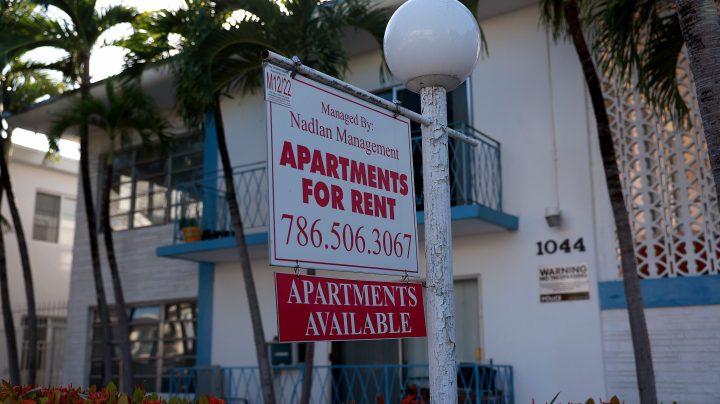
Rents are way up. How are landlords picking the price?

The White House today announced a bunch of new actions it was exploring to help the 44 million or so American households who rent the roof above their heads. The Federal Trade Commission is going to look into whether some tenant background checks are unfair, and the Federal Housing Finance Agency is going to look into limiting big rent hikes in the properties they help finance.
While rents in some markets in this country are finally cooling, the national median rent has shot up more than 20% since 2020. Which begs the question: How exactly do landlords figure out what they should charge for rent in the first place?
Sid Lakireddy is trying to rent out a 680-square-foot one-bedroom apartment in Oakland, California. It’s got a renovated deck, a kitchen island and some LED light fixtures — all for $2,200 a month.
How’d he decide on $2,200? He shopped around, just like his tenants would.
“I pulled up five different Zillow listings that are comparables in the neighborhood, looked at what the amenities are,” he said. “You know, some of them were $1,895, but I said, ‘Oh look at that, those are old Whirlpool appliances.'”
Pricing the 300 or so units he owns isn’t an exact science, Lakireddy said. That’s why he doesn’t trust the number the algorithm in his property management software spits out as the recommended rent.
“I use it very sparingly because what it doesn’t take into account for is the quality of the apartment,” he said.
Smaller landlords still mostly look at publicly available comps, per Ben Teresa at Virginia Commonwealth University. But bigger corporate landlords — especially those in the growing single-family rental market — are eagerly volunteering their info to more sophisticated big data platforms.
“The property managers will input the rents, vacancy rates and other types of data — perhaps operating expenses and things like that,” Teresa said.
If enough landlords are telling the algorithm exactly what they’re charging, it raises questions about whether rising rents are partly because of collusion, he said. “It does provide a coordinating action across a marketplace that would not exist without the technology.”
Of course, renters also have a lot more data on local rents than they had 10 years ago.
But with the better data landlords have, if you’re a renter, “I’d argue you’re in a worse position,” said Shanti Singh at the advocacy group Tenants Together. That is, unless you live in a rent-controlled apartment.
There’s a lot happening in the world. Through it all, Marketplace is here for you.
You rely on Marketplace to break down the world’s events and tell you how it affects you in a fact-based, approachable way. We rely on your financial support to keep making that possible.
Your donation today powers the independent journalism that you rely on. For just $5/month, you can help sustain Marketplace so we can keep reporting on the things that matter to you.

















